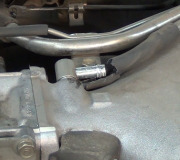Tuesday, January 18th, 2011 AT 1:03 PM
I have a 2006 Vibe with a high wandering idle when cold. I was told to me here to install a new temperature sensor. This has pronounced the idle wandering slightly, and it still has high idle when cold. Next steps?


